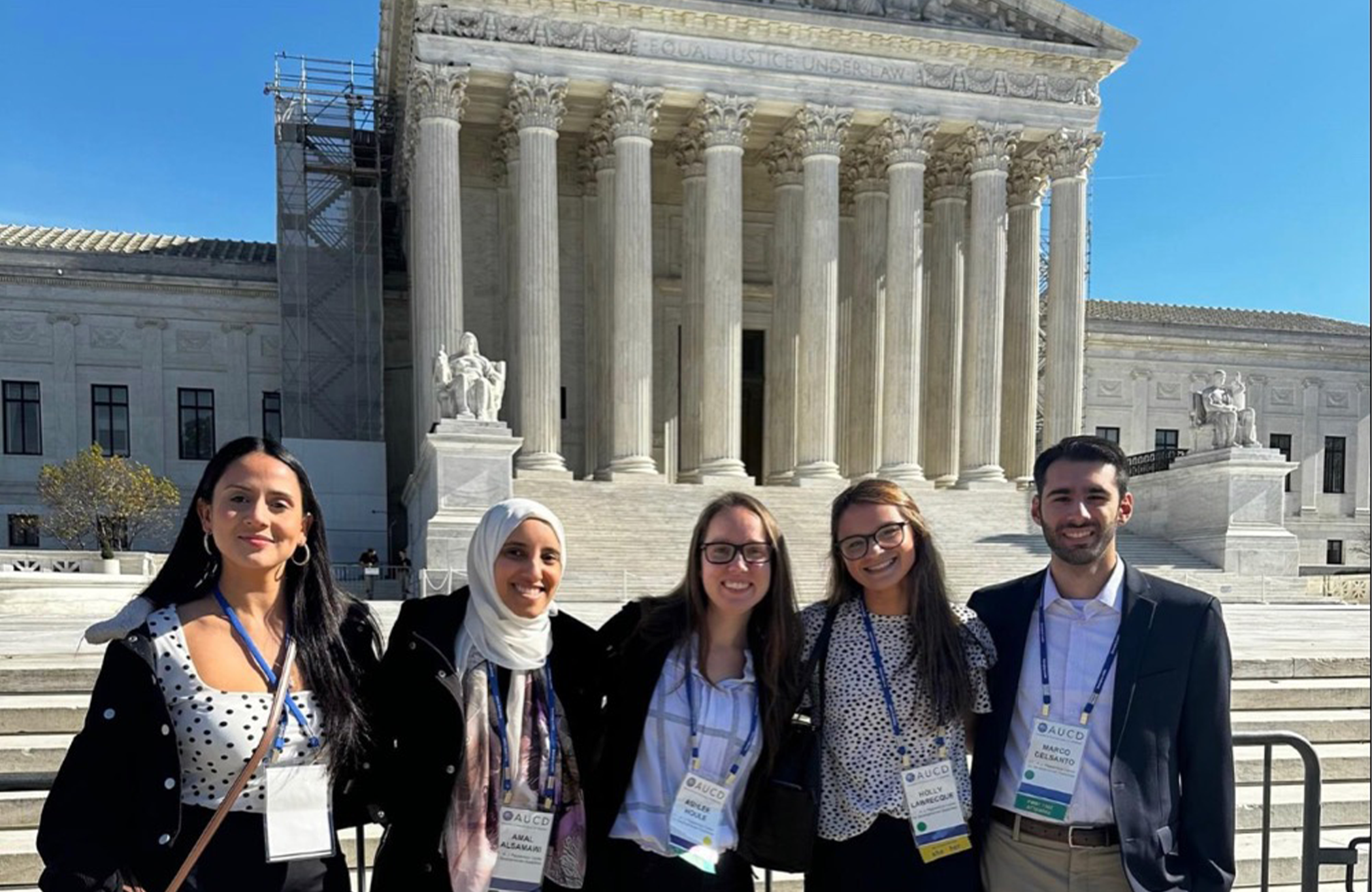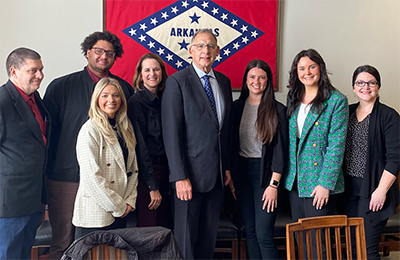February 20, 2026 | Vol. MMXXVI | Issue 149
In this edition:
- Public Health
- Department of Health and Human Services Leadership
- Home and Community-Based Services Report
- New Legislation
- AUCD Materials
- Words to Know
Public Health
CDC Grants – The Administration is trying to revoke more than $660 million in public health grants that were awarded through the Centers for Disease Control and Prevention (CDC). The awards had originally totaled about $1.4 billion, and about half of that had already been spent. A total of 108 awards were sent to California (which had the most funding), Colorado, Illinois, and Minnesota for a variety of public health initiatives, including STD prevention, public health workforce improvements, academic research into public health preparedness, and public health issues impacting minorities. The Department of Health and Human Services (HHS) has publicly said that these grants are being terminated because they don’t reflect agency priorities. The four states sued HHS and were granted a temporary restraining order (TRO) from a district court judge, halting the termination of the funding for now.
On February 13, 77 Democratic Members of Congress sent a letter to HHS Secretary Robert F. Kennedy, Jr. urging the Administration to immediately restore the funding. They warn that revoking this funding during the current measles outbreak is especially concerning, as many of the grants are intended to help states with public health preparedness and stemming infectious diseases.
ACIP Meeting – The Advisory Committee on Immunization Practices (ACIP) has indefinitely postponed an upcoming meeting. ACIP was supposed to meet February 25 through 27 and expected to discuss mRNA COVID-19 vaccines. Secretary Kennedy has been a vocal opponent of mRNA vaccines and canceled $500 million in mRNA vaccine research last year.
Key Takeaways
Because California, Colorado, Illinois, and Minnesota have Democratic leadership, the states in their lawsuit posit that HHS’ grant termination is politically motivated. The four states specifically mention that the Trump Administration “has made numerous attempts to strip funds from programs in States whose policies it disagrees with” and “three of the four Plaintiff States—California, Illinois, and Minnesota—have seen large public protests in response to aggressive federal immigration operations. In two Plaintiff States, Illinois and California, the administration’s response was to retaliate by unlawfully federalizing the National Guard in those States, ostensibly pursuant to 10 U.S.C. § 12406. The States successfully challenged those deployments in court.”
Plain Language
The Administration wants to take away funding that the government already gave out for health projects. They want to take away more than $660 million that the Centers for Disease Control and Prevention (CDC) gave to projects and programs in California, Colorado, Illinois, and Minnesota. The funding was for many different public health projects like getting more people to work in healthcare, researching how to be prepared for different public health issues (like COVID-19 or the flu), keeping people safe from getting diseases that are spread through sex, and improving health for people who don't usually get a lot of help from the government (this includes people who are Black, LGBTQ, women, Native Americans, and many more types of people). The Department of Health and Human Services (HHS) said that the grants are being ended because they don't go towards issues that the Administration cares very much about.
California, Colorado, Illinois, and Minnesota sued the Administration because of this issue. This means they want the Administration to change what it is doing, so they went to the court of law. They said that the Administration is taking the money away because people in the Administration have different politics (beliefs about policy) than the leaders in their states. They say that they are going against the Administration's immigration policy, so the Administration is mad at them and trying to get back at them, which is not allowed, according to the law. Immigration is when people leave the country they are from and go to another country.
When these four states sued HHS, a judge gave them a temporary restraining order, which means the judge said the Administration has to pause on taking back the money—for now.
Last week, 77 Democrats in Congress sent a letter to HHS Secretary Robert F. Kennedy, Jr. pushing HHS to give the funding back. They said they are worried that so much public health funding is being taken away during a measles outbreak. Measles is a disease that can kill people. An outbreak is when there are a lot of people who get a disease.
Read Newsletter










